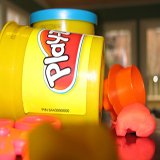To Play Kid Games is a Childs Work
To play kid games is an essential part of growing up, from birth to adulthood, for babies and young children of all backgrounds and abilities. The purpose of this section is to empower parents to create better play development opportunities for babies and young children up to the age of 12 years.
Have you ever wondered why our kids play games? Games kids can play promotes learning, development, growth and health. Fundamental movement skills, thinking skills, language, social interaction, play development and emotional development all happen best when your child is actively involved in an activity - when they are having fun - when they are playing!
Babies
Babies enjoy to crawl and play. They don't want to be left in a child play pen. Young babies actively respond to people around them. They watch their faces, listen to their voices, smile and make sounds. Later they discover objects to shake, drop, suck, bang, roll and crawl after. You as mother are their primary role-player: they watch what you do; listen to familiar songs and rhymes; enjoying tickling games; look at picture books with you; clamber over you; imitate sounds and words; clap and wave bye-bye. You are their main toy and focus at this stage. Take a short course here!
Toddlers
Toddlers become more interested in playing with things push/pull along toys, blocks, hammering toys, and sit and ride toys, early puzzles, child kitchen play set, play dough (play doh as some might call it), sand and water. They gradually become a little more secure playing further away from you, but still with you in sight. They become confident with you being a distance away from them. Usually it is acceptable for them - if they can still see you. They might get scared if you disappear all of a sudden without explaining why you are leaving. They will enjoy talking about play all gone, more cars, big ball. Take a short course here!
Pre-K
By three to six years, children enjoy pretending: that things are something else and that they are someone else. With practice, they will learn to play socially with their peers and make up all kinds of kid games to play. At this age they move more confidently enjoying challenges such as trikes and bikes, playgrounds, outdoor play equipment, outdoor play house, preschool finger plays and ball games. They love to play kid games that involve fundamental movement skills. Take a short course here!
Young Children
Six to nine year old kids seem to settle down to a steadier pace of growing and learning. Young school-age children are interested in real life tasks and activities, and pretend and fantasy lessen considerably. School-agers want to make "real" jewellery, take "real" photographs, and create "real" collections. Girls like to play dress up games. Take a short course here!
Preteen Children
School-age children have longer attention spans and they want to pack and play. They are more likely to stick with things until the project is finished, the problem solved, or the argument resolved. Doing things together with friends, teamwork, and following rules become very important. This age group is fascinated by rules and can develop games to play with extensive rules and rituals. Kids games to play at this age include board games, computer games, play Suduko and even try (and succeed) to play dart games. Middle childhood and fantasy play have become synonyms. Take a short course here!
12 Steps to Promote Play Kid Games
- Be involved
- Play kid games with your child
- Provide good play spaces
- Incorporate play into everyday activities
- Follow your childs lead during play
- Join a local playgroup
- Reassure your child that it is "OK" to make mistakes
- Join your local toy library
- Allow for repetition
- Allow time to play
- Turn the television OFF
- Let the child play independently
- Play educational games
- Play outdoor games
Remember: Child play equipment should be safe.
How to Play Kid Games - A Short Course
Why don't you take a short course and learn the skills associated with how to play kids games, appropriate playthings and what caregivers can do for each of the age levels.
Children face many barriers to play, such as lack of space and time, dangerous neighborhoods and unsympathetic attitudes. They need high quality play environments, balancing safety with the need for challenge and adventure, to gain the most benefit from playing kid games. Many parents don't realize the importance of play for a child.
Early childhood education is the key to optimal stimulated kids.
Find It!
Can't remember where you read something specific? Just type in your search term in the box below and your specific topic will be returned to you instantly.









